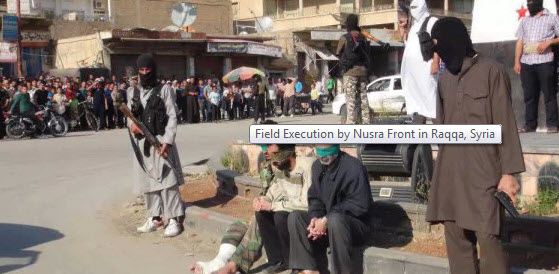
Today Zionism is playing a very BIG game and many muslims are trapped to this filthy ploy. The enemies showed a fake target for muslims and a so- called jeehad in Syria… But why no any so- called Islamic Media talking about Palestinian Plight despite many oppression and bad prison condition? YES Palestine is no more a PROBLEM of UMMAH because Lord U.S, Israel say that the Brutal(?) Assad must be toppled and you are a martyr if you are killed by Assad. YES the zionists today become the Americanized Islamic Scholars for some who called themselves as muslims but no any single sign of ISLAM and FAITH… YES the ones in Syria who scream “Allaho Akbar” then behead an Imam of a Mosque, putting bomb during a Scholar (Martyr Mohammad Ramazan Al- Bouti) preaching and giving Tafseer, Hadeth lessons… YES these are muslims muslims BUT BUT Americanized Muslims whose islam is defined by their zionist lords, whose mottos are islam but all their acts opposite to Islam… Where were they when the american dogs raping our sisters, mother in Iraq, Where were they when israHELLi dogs killing any Palestinians and torturing many others in prisons where you can see no any humanity, mercy… NO NO ASSAD is KUFFAR and israel is helping mujaheeds in syria… Either israHELL converted to Islam or Mujaheeds(?) converted to zionism? the rest is your answer. The answer is so easy.







